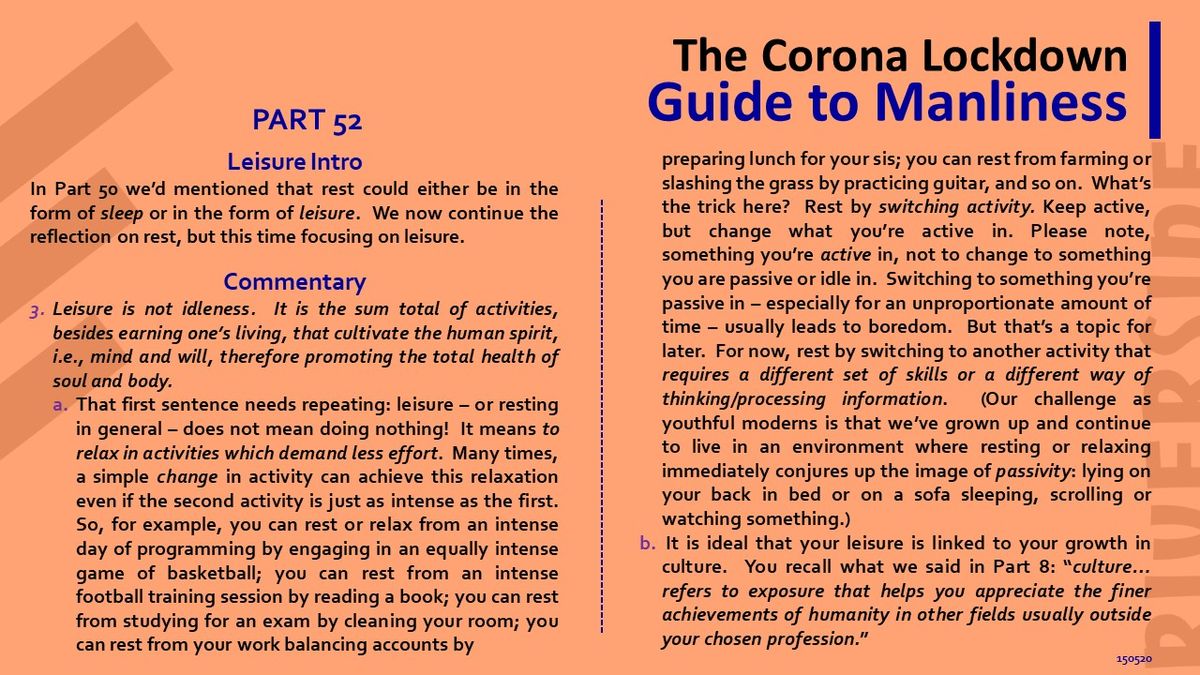Leisure Intro
In Part 50 we’d mentioned that rest could either be in the form of sleepor in the form of leisure. We now continue the reflection on rest, but this time focusing on leisure.
Commentary
3. Leisure is not idleness. It is the sum total of activities, besides earning one’s living, that cultivate the human spirit, i.e., mind and will, therefore promoting the total health of soul and body.
a. That first sentence needs repeating: leisure – or resting in general – does not mean doing nothing! It means to relax in activities which demand less effort. Many times, a simple change in activity can achieve this relaxation even if the second activity is just as intense as the first. So, for example, you can rest or relax from an intense day of programming by engaging in an equally intense game of basketball; you can rest from an intense football training session by reading a book; you can rest from studying for an exam by cleaning your room; you can rest from your work balancing accounts by preparing lunch for your sis; you can rest from farming or slashing the grass by practicing guitar, and so on. What’s the trick here? Rest by switching activity. Keep active, but change what you’re active in. Please note, something you’re active in, not to change to something you are passive or idle in. Switching to something you’re passive in – especially for an unproportionate amount of time – usually leads to boredom. But that’s a topic for later. For now, rest by switching to another activity that requires a different set of skills or a different way of thinking/processing information. (Our challenge as youthful moderns is that we’ve grown up and continue to live in an environment where resting or relaxing immediately conjures up the image of passivity: lying on your back in bed or on a sofa sleeping, scrolling or watching something.)
b. It is ideal that your leisure is linked to your growth in culture. You recall what we said in Part 8: “culture… refers to exposure that helps you appreciate the finer achievements of humanity in other fields usually outside your chosen profession.”
150520
